
FAQ: What Size Generator Do I Need to Run a Refrigerator and Freezer?
Are you trying to determine the size of generator you need to keep your refrigerator and freezer running during a power outage? This is a wise move as many people don’t realize that their food can go bad pretty quickly when the power goes out.
I have great news for you! Our team here at Generatorist has helped over 600,000 visitors find information about generators and we will help you as well.
In this article, we’ll provide an overview of the factors to consider when choosing a generator for your fridge and freezer, including the type of fridge, its power consumption, and the importance of choosing the right kind of generator.
We’ll also provide estimates of the power consumption of various types of refrigerators, as well as tips for using and maintaining your generator.
Let’s begin.
THE KEY TAKEAWAY:
To power a modern refrigerator with a freezer, you will need an inverter generator with at least 2000 starting watts. Good options include the Yamaha EF2000iSv2, WEN 56200i, or Generac GP2200i. These generators provide enough power to run most fridges safely, which typically require between 800 and 1200 starting watts.
However, when selecting a generator, it’s important to consider the total harmonic distortion (THD) as some fridges have microprocessors that can be damaged by high THD. So, make sure to choose a generator with low THD to ensure the safe operation of your fridge.
The size of a generator depends on the type of fridge you want to power:
- While modern appliances have much lower power consumption (around 300 – 400 watts), even while the compressor starts to kick in, the older types of fridges are going to need a bigger power supply (around 300 – 1,200 watts).
- Another aspect that will affect the required size of your generator is whether your fridge also comes with a freezer. In such a case it will require even more power (add 80 – 100 watts to those numbers mentioned above).
Keep in mind that typically, fridges will need at least 1.5x – 3x the running power to start the compressor motor. Therefore, you need a generator that is capable of providing at least that amount of energy.
Getting a 2000 surge watts generator should be more than enough to power any refrigerator and freezer. Also, size is not the only aspect you need to consider while choosing your generator.
Does your fridge come with a smart control panel and various sensors? Then your fridge will probably have microprocessors built into it.
In such a case, you need to choose an inverter generator (here is our article on what is an inverter generator) as the regular one usually has a high total harmonic distortion (THD) that could damage or even destroy those microprocessors.
As you can see, choosing the correct generator to keep your fridge working is not as simple as it may seem.
That is why we have created the following table with rough power consumption estimates of different types of refrigerators so that you can make a better decision.
Fridge Wattage Chart
| Type of Fridge | Running Watts | Additional Starting Watts | Inverter Needed |
|---|---|---|---|
| Mini Fridge | 85 - 100 W | 127 - 150 W | Usually no |
|
|
|||
| Smart Fridge | 250 - 500 W | 375 - 750 W | Yes |
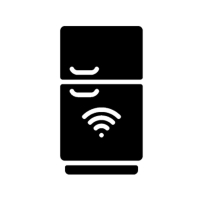
|
|||
| Under-Counter Refrigerator | 90 - 140 W | 120 - 210 W | Usually No |

|
|||
| Modern Fridge (2001-2020) | 100 - 400 W | 150 - 600 W | Yes |
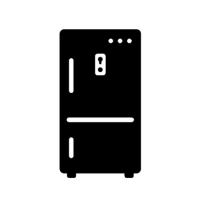
|
|||
| Side-by-Side Fridge | 792 W | 1,188 W | Yes |

|
|||
| Refrigerator Showcase | 210 W | 315 W | Usually No |

|
|||
| Old Type of Fridge (1993-2000) | 200 - 800 W | 300 - 1,200 W | Usually No |

|
|||
| Mini Glass Refrigerator | 140 W | 210 W | Usually No |

|
|||
| Mini Freezer | 35 - 50 W | 52 - 75 W | Usually No |

|
|||
| Deep Freezer (Chest) | 350 - 500 W | 525 - 750 W | Usually No |

|
|||
| Counter-Top Fridge | 160 W | 240 W | Usually No |

|
*Just keep in mind that these numbers are rough estimates. To get better estimates, check out the name tag on your electric appliance. To learn the most accurate numbers, get a plug-in power meter.
How many watts to run a refrigerator on a generator?
There are two numbers in the table above you should focus on. Each refrigerator requires a certain amount of starting watts and running watts. Let me explain the difference:
Running watts – The first, smaller number, refers to rated (running) watts – the amount of power your refrigerator requires over longer periods.
Starting watts – The second, larger number, refers to the surge (or starting) watts – the maximum power your refrigerator needs over a short period.
The average power consumption of a fridge is usually anywhere between 100-400 watts. For most residential homes, 200 will be more than enough – with 180 watts being enough for fairly large fridges.
A refrigerator and freezer will, of course, require a bit more energy – with a 240-liter combo requiring closer to 300-400.
It’s important to note that refrigerators and freezers require additional power to start up, which is usually 1.5 to 3 times the average running watts. To ensure you have enough power, we recommend selecting an inverter generator with at least 2000 starting watts.
Good options include the Yamaha EF2000iSv2, WEN 56200i, or Generac GP2200i. These generators provide enough power to easily run most medium-sized refrigerators with a freezer.
The key thing to keep in mind with a fridge is that this is something that runs around the clock.
This means you can’t afford to have any interruptions in your power supply. To discover power needs for other appliances, feel free to visit our popular guide here: List of Electric Appliances & Their Wattage Usage
Questions to Ask
To get a more accurate idea of what size and type of generator to choose to power your fridge, you should answer the following questions first:
- Is your refrigerator older or newer? Earlier models consume more power than modern fridges. Also, if you buy an electric appliance, its power consumption can gradually rise as it gets older.
- How big is the total capacity of your fridge? If you have a smaller fridge, then it will require less power to run properly. On the contrary, if you have a large fridge full of groceries and food, the power consumption will be higher.
- Does it have a built-in freezer? If your fridge comes with a freezer, then it will require more power to run, as compared to the refrigerator only.
- Does it have an ice maker & dispenser? Any extra functions and features your fridge offers usually come at a price of higher power consumption.
- Does your refrigerator come with a smart control panel and various sensors? If the answer is yes, then you will need to get an inverter generator, as typical portable generators have a high total harmonic distortion that will damage microprocessors in your appliance.
- How many amps does your refrigerator need? Usually, each generator has several types of outlets and they provide either 15 or 20 Amps.
- Are you going to run other appliances at the same time? Initially, people buy their generators only to run their fridge to avoid food spoilage. What they don’t realize is the fact, that they will also need to power other appliances at the same time. That is why we recommend counting with an extra 20-30% bigger power supply. However, if you know that you will need to power just a fridge, then you can get a generator that covers total starting watts +10% just to be sure.
As you can see, there are a lot of factors that come to play when choosing the best generator to run a fridge.
Looking for a 2000 watt generator?
Types of generators
How does this translate to the different types of generators that we know of?
We are going to take a look at typical generators with combustion systems (gasoline, diesel, propane and inverter) as well as alternative, more “green”, options (solar & wind power generator).
Typical Generators
A typical portable generator – a gas generator, for example – will provide anywhere up to 10,000 watts. This is more than enough power to keep a refrigerator running.
If you have a backup generator – a generator specifically designed to power a home or a business in the event of a power outage – that will often be able to deliver as much as 15,000 watts.
Again, this is more than sufficient to power a fridge.
Some of the top rated generators on the market include:
- Sportsman GEN2000 Generator
- DuroMax XP4400E Portable Generator
- Champion 4375/3500-Watt Dual Fuel Generator
If you have some free time and want to learn about features to look for in a generator, we have a great guide that will help you with choosing the best generator for your household here and a guide that is aimed at helping contractors here.
Inverter Generators
Things get a little more difficult if you are running an inverter generator. These are more efficient generators capable of providing a quieter and less fuel-hungry operation.
An inverter generator is a special type of generator that provides power by inverting electricity. Specifically, these generators work by converting AC electric current to DC electric current, then inverting it back to AC electric current.
This process results in a cleaner wave of energy than what you’d get from other kinds of generators. Inverter generators tend to be more efficient and compact than traditional units, but they’re typically more expensive as well.
PROS OF AN INVERTER GENERATOR:
- Produces power with significantly lower THD
- Lighter and smaller
- More energy efficient than traditional generators
- Much lower fuel consumption
- Parallel capability
- Safe for sensitive electronics like laptops or mobile phones
- Quieter than traditional generators
CONS OF AN INVERTER GENERATOR:
- Significantly more expensive than traditional generators
- Lower power output – limited wattage range
- Costly repairs and servicing
- Limited fuel options
They provide around 1,000 – 4,000 watts of energy – which again should handle most fridges just fine. These are all forms of gas generators.
For a comprehensive overview of inverter generators and how they work, read our guide here: What Is an Inverter Generator & How Does It Work? (Pros + Cons Included)
Some of the top rated inverter generators on the market include:
Portable Power Stations
If you’re using a portable power station that’s powerful enough for the refrigerator, you should be able to run it for several hours without any problems.
For example, the Jackery Explorer 1000 can run a refrigerator rated at under 1,000 watts for up to seven hours. However, other portable power stations, such as the Jackery Explorer 240, may only be powerful enough to run a mini-fridge for a few hours.
The only way to know for sure is to verify the wattage of the portable power station as well as the refrigerator you’re intending to run.
Some of the top rated portable power stations on the market include:
Solar & Wind Generators
Another option is to use some kind of solar generator. These convert energy from the sun into a usable current via a process called solar photovoltaic.
In short, the arrangement of electrons on the solar panel is such that the light from the sun excites them and causes them to move in a way that generates a usable current.
You can even run a fridge on a wind turbine in theory! These can be purchased for businesses or the home, and work by powering a turbine via the kinetic energy provided by wind.
So can these power a fridge? Well, a solar voltaic generator will often provide around 80 Watts to 100 Watts of power (higher for an active panel that can follow the movement of the sun) whereas a wind turbine can provide a little more.
While it’s possible to power a mini-fridge from these, this is far from an optimal solution.
Some of the top rated solar generators on the market include:
Something to consider when using any type of generator is that the startup requirements for a fridge are higher than the running requirements.
Typically, they will need 1.5x – 3x the running power to start the compressor motor – so you need a generator that is capable of providing at least that amount of energy.
Can a generator damage
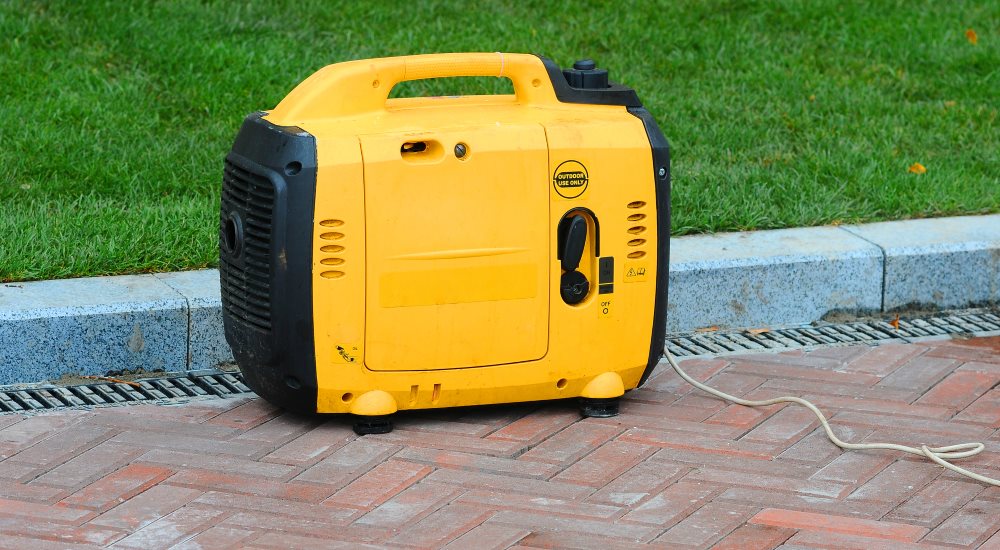
If a generator becomes overloaded while connected to a refrigerator, it’s possible for the generator, refrigerator, and freezer to become damaged. There are a couple of different ways that this might happen.
For one, if you have the generator hooked up to other appliances in addition to the refrigerator, the combined power consumption (here is our list of power consumption of the most common household appliances) may become too much for the generator to handle, in which case the generator and the appliances may be damaged.
In other cases, a refrigerator may become damaged because its watt consumption is too high for the generator.
As a refrigerator runs, its compressor regularly switches on and off to maintain the correct temperature, and if the generator doesn’t have enough power to support those occurrences, it can become a problem.
The sheer amount of power is not the only factor to consider when choosing a generator for a fridge. For example, you also need to think about whether the generator can damage the refrigerator due to the nature of the energy produced.
The answer is no… with caveats.
If you are going to power a standard fridge, then it should be just fine running on a typical diesel or gasoline generator. However, if you are trying to run a “smart fridge” with programmable elements, then you must consider using an inverter generator.
These provide a smoother and cleaner sine wave when they produce AC power, which in turn is better suited to microcontrollers.
If you use the block wave that can come from a regular generator, then you might risk damaging the computer circuitry that controls things like timers and smart-home integrations.
To discover more tips on running your refrigerator safely on a generator, check out this article on the Generatorist: Can a Generator Damage a Refrigerator? Safety Tips & More
Safety & efficiency tips
If you’re planning on running your fridge on a generator, then you should consider a few things:
- You can find out precisely how much wattage the fridge needs to run by looking at the nameplate or in the instruction manual. If you can only find the voltage and amperage, you can multiply the voltage by the amperage to get the watts (voltage x amperage = watts).
- Fridges often need an extra jolt of energy to start. This is used to start the compressor motor. Multiply the standard running wattage by 1.5 to get this number.
- Interruptions to your power supply should be minimal. When switching between sources, don’t allow the fridge to stand for long. One way to get around this is to use a standard battery converter to run the fridge from a car battery while you refuel your generator. Another tip is simply to avoid letting your fuel run out entirely.
- Make sure that you have enough power outlets for both your fridge and any other appliances plugged into the unit.
- Keep an eye on your usage throughout the day.
- Give the generator a moment to boot up before swapping the power supply.
- Make sure that you place the generator on a flat surface.
- Keep your generator up to 20 feet away from the home and any overhanging canopies.
- Invest in an enclosure for your generator to keep it out of harm’s way, as well as keeping it dry and less of an eyesore.
- Note that inverter generators are more energy efficient when running fewer appliances and also quieter.
- Never refuel your generator while running! Also, you need to let it cool down before you can refuel it.
Also, always read the instruction manual for your generator and follow every safety recommendation that is written there.
It’s crucial to follow these OSHA guidelines for preventing carbon monoxide poisoning:
- Never use a generator indoors or in enclosed spaces such as garages, crawl spaces, and basements. NOTE: Open windows and doors may NOT prevent CO from building up when a generator is located in an enclosed space.
- Make sure a generator has 3 to 4 feet of clear space on all sides and above it to ensure adequate ventilation.
- Do not use a generator outdoors if its placement near doors, windows, and vents could allow CO to enter and build up in occupied spaces.
- If you or others show symptoms of CO poisoning – dizziness, headaches, nausea, tiredness – get to fresh air immediately and seek medical attention. Do not re-enter the area until it is determined to be safe by trained and properly equipped personnel.
Useful Tips from Reddit Users
Users on Reddit are sharing some interesting tips as well:
What the people I know did after Hurricane Maria was to turn off the generator during the night. Since no one is opening it, it should be cold enough. Then also run it for longer times during the morning and before turning it off for the night, (this is if fuel or the generator is an issue)…” Continue reading this comment on Reddit.
“I do not unplug unless I’m running a big power draw elsewhere. For reference we run our main fridge freezer and three chest freezers on a 2000ui, AT ONCE. You can’t have them start at once but they can all run at once.
I just delay/stagger plugging them in and have never had an issue. That plus lights and a computer is fine. I’ll unplug a fridge or freezer to run the TV if needed. I run from 7-9am until around 11PM at night then turn it off and start again in the morning around 7-9am….” Continue reading this comment on Reddit.
“On to other matters: a typical refrigerator or freezer only needs to run once every three hours or so to keep the internal temperature at a suitable level. Not opening the fridge/freezer unnecessarily helps out, as does providing extra insulation with blankets.
With that said, running a generator for hours on end just to keep a fridge/freezer cold is very wasteful of fuel. It’s verging on just plain stupid if temperatures outside are at/below freezing…” Continue reading this comment on Reddit.
Conclusion
There are many ways to power a fridge without relying on your main power supply. These include using standard generators, inverter generators, and more.
That said, for several reasons, an inverter generator will typically offer many benefits over other options.
Here’s a quick summary: To safely power a medium-sized modern refrigerator with a freezer, we recommend choosing an inverter unit with at least 2000 starting watts. Good options include the Yamaha EF2000iSv2, WEN 56200i, or Generac GP2200i.
Keep an eye on the startup demands of the fridge, and practice safety at all times! Please remember, don’t run your generator in the house & watch out for CO poisoning.
From 2005 to 2017, in the United States, 1061 people died from the use of engine-driven tools and 880 of those deaths were caused by generators. Better be safe than sorry!
READ NEXT ON GENERATORIST:
- Choosing the Best Generator for Your Household
- Can a Generator Damage a Refrigerator? Safety Tips & More
- Best 2000 Watt Portable Generators
- Power Consumption of Household Appliances
- List of Electric Appliances & Their Wattage Usage
- What Can You Run on a 2000 Watt Generator?
- How to Easily Tune Up Your Generator
About Generatorist

Matthew Gerther
Founder, Generator enthusiast
Our aim here at the Generatorist is to become the No. 1 resource for all things related to generators & your power needs. We have helped over 600,000 visitors with our tips, articles and reviews and we will help you as well.
Our work has been featured in many publications around the world – Yahoo.com, Telegram.com, PaylessPower.com, PopSci.com, TopTenReviews.com, TechRepublic.com, iRV2.com, ThePrepared.com, Renogy.com or ADT Solar. Generators are our passion, and we strive to provide the most reliable & most comprehensive information out there.



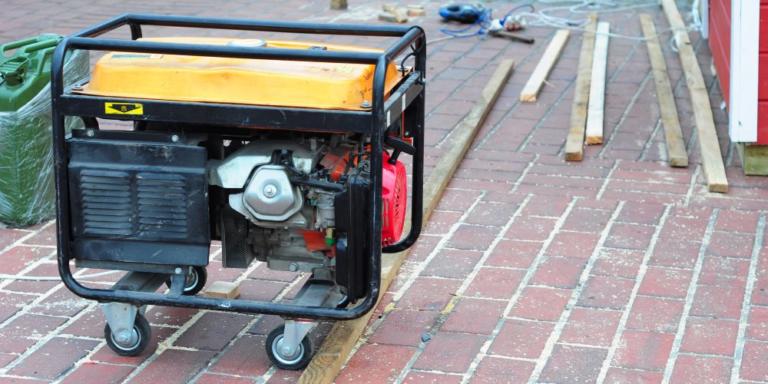
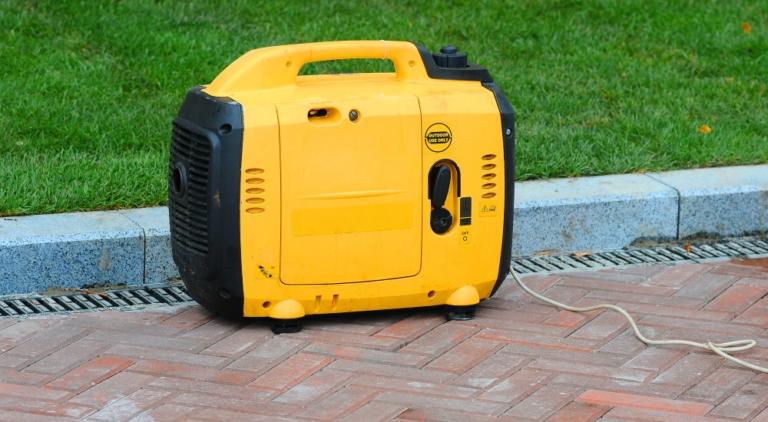
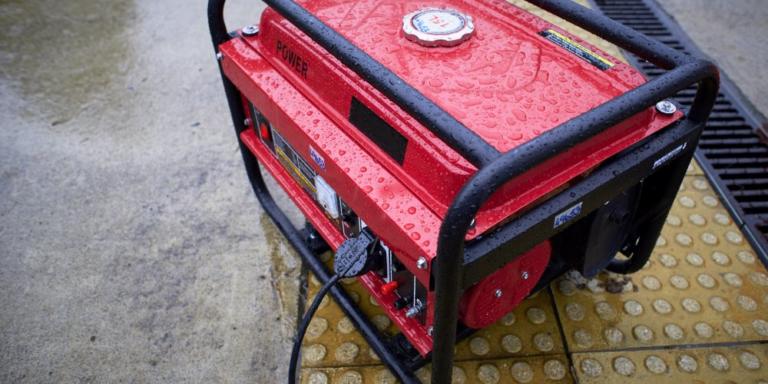
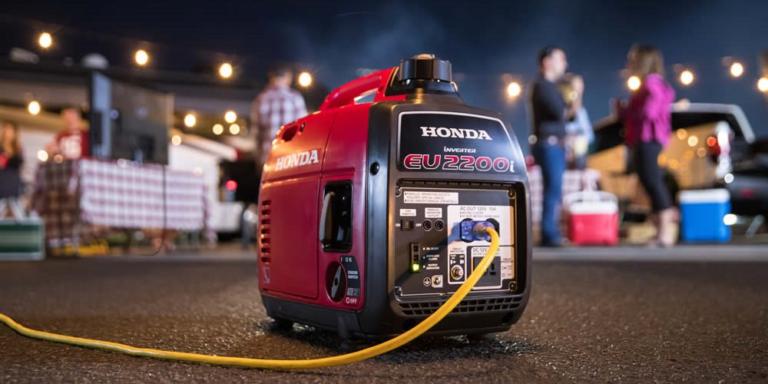

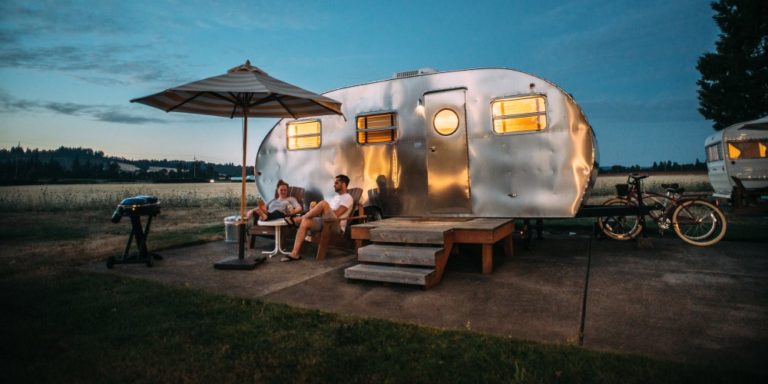

3 thoughts on “FAQ: What Size Generator Do I Need to Run a Refrigerator and Freezer?”
What an informative well-done sight to learn the ins and outs of using a generator. I appreciate your knowledge. We live in Ohio, a tornado touched down in Dayton a year ago. Our power company reassures us in many ways they use drones to look over the power lines and they are fortifying respective junctions for reliability. We have severe storms here, but on average we miss getting the brunt end of a nasty weather pattern. Why should we spend good money on getting a generator(s) it could be a potential waste of money because we would never use our equipment like someone in Houston or Louisianna? We have an EcoFlow Delta 1300 and a Champion Dual Fuel 3100 generator. I am considering a plan to purchase a coupler to run parallel to a twin Champion generator. The concerns listed is my wife’s thinking. Relatedly, would you recommend a 30 amp transfer switch?
I have an lfcs2252os lg refrigerator
What kind of solar gas generators
can use for it
I have a 26 litre electric cool box & a 34L desktop freezer..
Am hoping to find an appropriate solar generator to run just those..
What wattage Genny would you recommend please ?